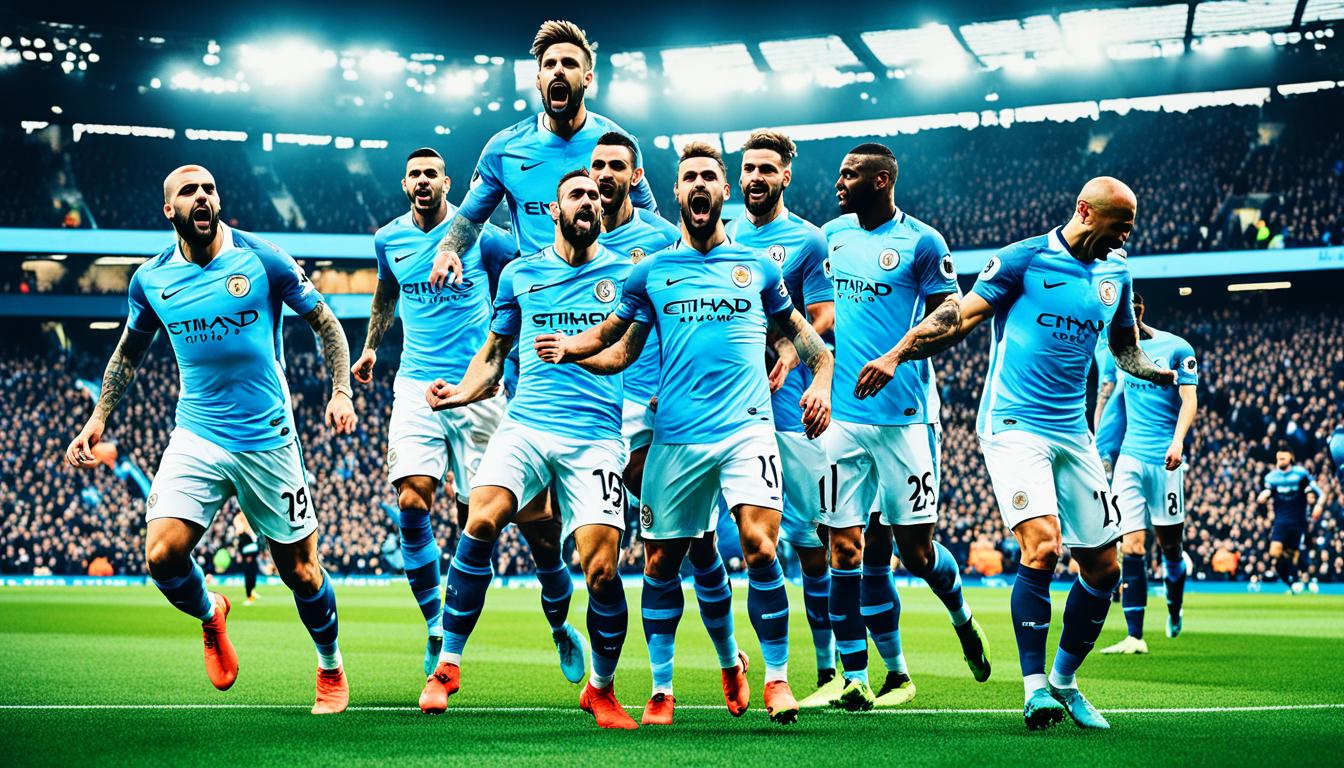
“Success is not just about what you accomplish in your life, it’s about what you inspire others to do.” – Unknown
In recent years, Manchester City Football Club, commonly referred to as Man City, has transformed into a dominant force in English football. With the club’s remarkable ascent culminated in a historic fourth consecutive Premier League title, they have not only redefined success on the pitch but have reshaped the entire landscape of English football. The staggering achievement of winning six titles in just seven years highlights their unmatched prowess and strategic excellence in a highly competitive arena.
As Manchester City navigated the challenges of modern football, their commitment to efficiency, backed by astute financial management and smart player acquisitions, set them apart from other clubs. Since 2008, when ownership changed, the club has invested heavily in talent, outpacing local rivals like Manchester United in both financial commitment and on-field performance. Not only has Man City demonstrated a remarkable net transfer spending strategy, but their success has also captured the interests of fans worldwide, elevating their brand value to £1.4 billion.
Throughout this article, we will explore the factors that contributed to Manchester City’s rise as a premier league powerhouse, including key figures such as Pep Guardiola and the remarkable squad that continues to deliver unprecedented results in both domestic and European competitions.
Key Takeaways
- Manchester City has won a historic fourth consecutive Premier League title.
- The club’s success includes six titles within seven years, showcasing their dominance.
- Efficient net transfer spending strategy compared to rivals like Manchester United and Chelsea.
- Pivotal contributions from key players such as Kevin De Bruyne and Ederson.
- The club has faced controversy with over 100 charges related to financial regulations.
Introduction to Manchester City
Founded in 1880 by members of St. Mark’s Church in Manchester, Manchester City FC has a rich history in English football. Originally known as St. Mark’s (West Gorton), the club underwent several changes before adopting the name Manchester City in 1894. Throughout its evolution, the club has established itself as a prominent figure in the Premier League.
The journey to success has been marked by key achievements, including two Football League First Division championships in the 1936–37 and 1967–68 seasons, and four FA Cup victories spanning from 1904 to 1969. Manchester City made headlines by winning the European Cup Winners’ Cup in the 1969–70 season, showcasing its prowess on the continental stage.
Today, Manchester City stands as a powerhouse in the Premier League. With a total of seven Premier League titles to its name, including a remarkable achievement of four consecutive championships from 2020 to 2024, the club has set numerous records. Notably, Manchester City recorded an impressive 100 points in the 2017–18 season, marking a high point in Premier League history.
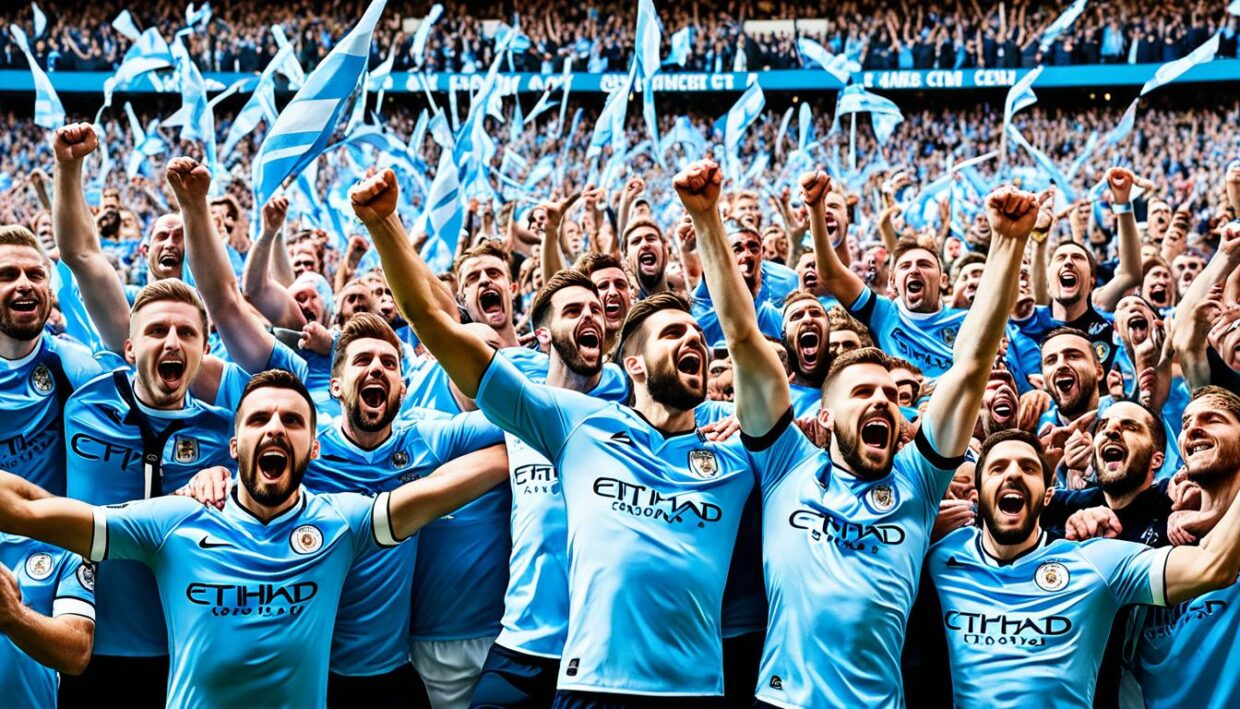
As the club continues to make strides in domestic and international competitions, it plays a crucial role in the fabric of English football. The foundation laid over a century ago has transformed into a legacy that attracts fans from around the globe, unifying them under the banner of Manchester City FC.
The Rise of Man City in English Football
The journey of Man City from mid-table obscurity to the pinnacle of English football illustrates a remarkable rise in football that transformed the landscape of the Premier League. This transformation gained momentum after the Abu Dhabi United Group acquired the club in 2008, marking a turning point. Significant investments in top talent and infrastructure propelled the club to unprecedented heights.
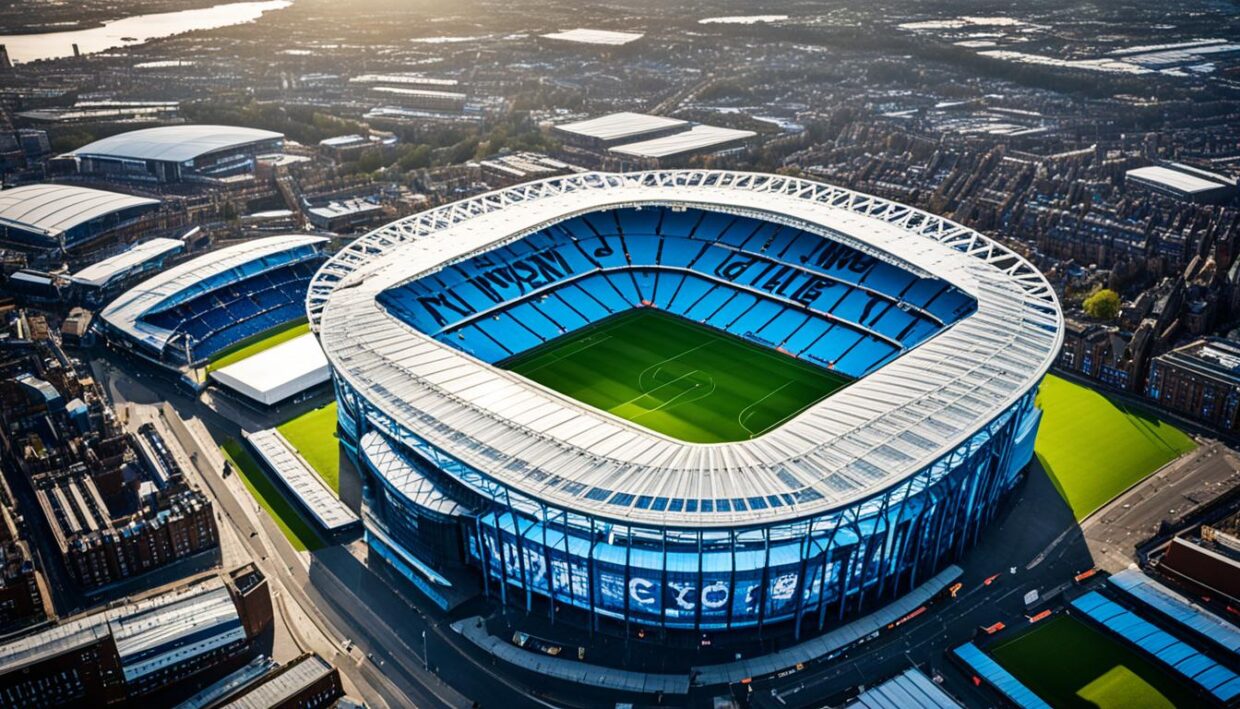
Since this pivotal acquisition, Man City has secured a multitude of honors, boasting nine league titles and contributing to their reputation for Premier League success. The immediate impact included a record-breaking transfer of Brazilian star Robinho, which signaled the club’s intent to compete at the highest level. Over the years, they have added seven FA Cups, eight League Cups, and a triumphant UEFA Champions League title to their trophy cabinet.
The club co-founded the Premier League in 1992, positioning itself as a key player in shaping modern English football. Their record-breaking home attendance of 84,569 in 1934 showcases their long-standing connection with passionate supporters. Even amidst ups and downs, including financial challenges, Man City managed to bounce back with determination, ultimately solidifying their status as a dominant force in English football.
Sheikh Mansour and the Transformation of the Club
Sheikh Mansour bin Zayed Al Nahyan’s acquisition of Manchester City in 2008 marked the beginning of a remarkable man city transformation. His investment, estimated at £210 million, injected new life into a club long overshadowed by its neighbors. Under his ownership, the club embarked on a strategic plan that prioritized football investment and aimed for long-term success.
Significant financial backing enabled Manchester City to attract top-tier talent and coaching staff. For instance, the signing of Sergio Aguero for £38 million and the record-breaking acquisition of Robinho for £32.5 million underscored the ambitious approach. Furthermore, during Mark Hughes’ time at the helm, approximately £270 million was spent on player acquisitions, laying the groundwork for future triumphs.

The hiring of Roberto Mancini proved pivotal, as he guided the club to its first league-and-cup double, establishing a new era of success. Subsequent managerial stints highlighted a clear emphasis on maintaining and expanding this legacy. Manuel Pellegrini’s term saw over £150 million invested in the City Football Academy, emphasizing youth development while enhancing the club’s infrastructure.
The transformation extended beyond the pitch. Sheikh Mansour’s vision led to the creation of the City Football Group (CFG), streamlining operations across multiple clubs, including New York City FC and Melbourne City. This organization allows the sharing of medical and scouting data, enhancing the overall efficiency of football operations.
Under the guidance of Sheikh Mansour, Manchester City evolved into a global powerhouse. The club’s remarkable achievements include three Premier League titles, three League Cups, and numerous domestic accolades. As of 2017, the club’s assets under Al-Mubarak’s management totaled $100 billion, reflecting the success of Sheikh Mansour’s investment strategy.
| Year | Acquisition | Title Won | Investment (£) |
|---|---|---|---|
| 2008 | Sheikh Mansour buys Manchester City | N/A | 210 million |
| 2011 | N/A | FA Cup | 270 million (under Mark Hughes) |
| 2012 | N/A | Premier League | N/A |
| 2019 | N/A | Domestic Treble | Over 1.4 billion total since 2008 |
| 2021 | N/A | Champions League Final | N/A |
Pep Guardiola: The Architect of Success
Pep Guardiola, the man city manager, transformed Manchester City into a dominant force in English football. His arrival in 2016 marked a pivotal moment in the club’s history, ushering in an era characterized by extraordinary coaching success. Under Guardiola’s leadership, City has amassed a remarkable collection of trophies, including multiple Premier League titles.
Guardiola’s coaching philosophy emphasizes possession-based football, high pressing, and tactical flexibility. This approach not only enhances his team’s effectiveness but also captivates fans worldwide. His tenure with Barcelona, where he won an astonishing 14 trophies, solidified his reputation as one of the greatest managers of the modern era.
During his time at Manchester City, Guardiola maintained an impressive 80% win rate in the league, showcasing his ability to adapt and excel in different football cultures. Notably, achieving a record-breaking 100 points in the 2017-18 season exemplified his innovative tactics and team’s execution.
Guardiola’s influence extends beyond individual matches. He has profoundly impacted a generation of coaches and players. His education in total football under the legendary Johan Cruyff informed his understanding of the game, allowing him to implement tactical innovations that revolutionize how teams play.
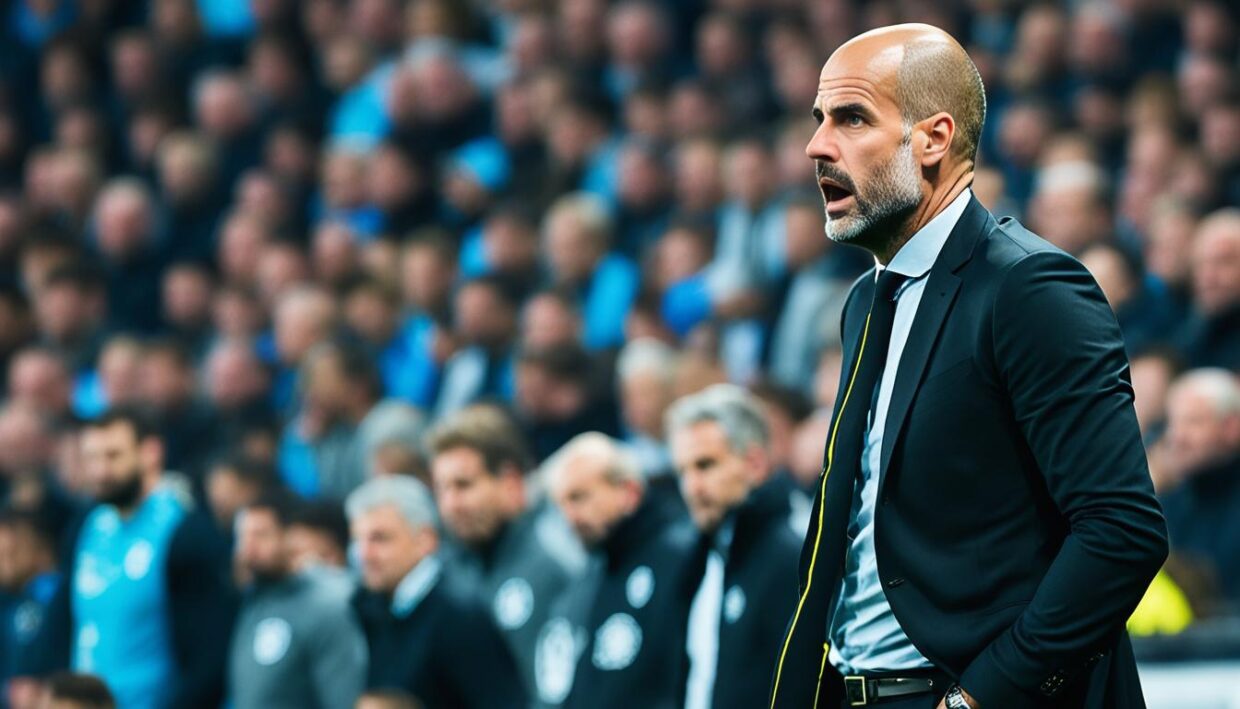
| Club | Trophies Won | Key Achievements |
|---|---|---|
| Barcelona | 14 | Sextuple in 2009 |
| Bayern Munich | 5 | 3 Bundesliga Titles |
| Manchester City | 10 | Record-breaking Premier League Points |
Through guiding young talent and integrating experienced elite players, Guardiola stands out as an architect of footballing success, ensuring Manchester City’s repute as a leading club in both domestic and continental competitions.
Current Squad Analysis
The man city current squad showcases a blend of experience and youthful energy, crucial for sustaining their competitive edge. Injuries have impacted key players, but the team remains filled with exceptional talent ready to step up. Significant contributors like Kevin De Bruyne and Raheem Sterling highlight the attacking prowess that keeps opponents on their toes.
Key Players: Kevin De Bruyne and Raheem Sterling
Kevin De Bruyne, despite facing a major injury at the season’s start, remains a cornerstone for the team’s attacking strategy. His vision and playmaking skills have been instrumental in shaping matches. Alongside him, Raheem Sterling has consistently delivered impactful performances, contributing goals and assists that bolster Manchester City’s offensive threats. Together, they define the attacking framework that underscores the team’s ambitions.
Defensive Strengths: Ederson and the Back Line
On the defensive front, Ederson’s goalkeeping has been pivotal for the man city current squad. His ability to read the game and assert control helps in maintaining defensive solidity. The collective strength of the back line complements Ederson’s skills, making it challenging for opponents to penetrate. This well-rounded approach allows Manchester City to remain competitive in crucial matches.
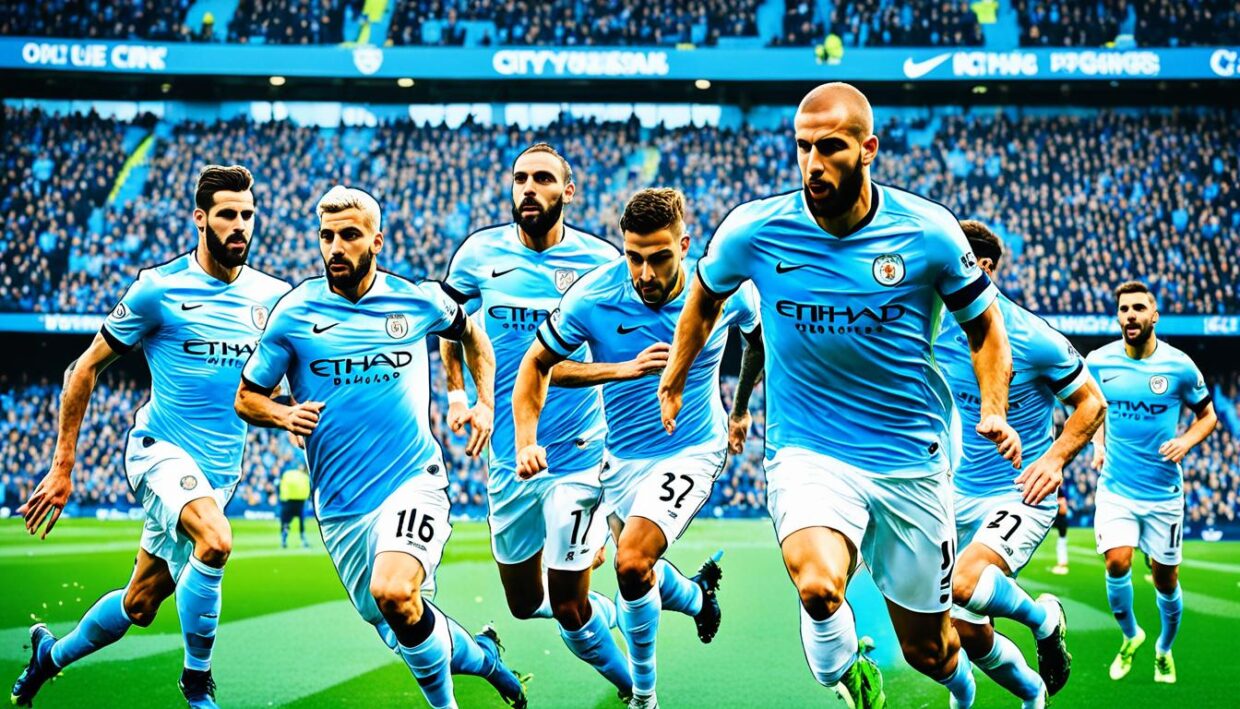
Record-Breaking Premier League Campaigns
Manchester City has truly cemented its place in football history with an impressive display of dominance in the Premier League. The club recently achieved a record-breaking fourth consecutive Premier League title, a feat unmatched since the inception of the football league in 1888. This remarkable accomplishment highlights the extent of their football dominance.
Phil Foden’s stunning goal just 79 seconds into the match against West Ham set the tone for a season filled with exceptional performances. Finishing the season with 91 points and a remarkable goal difference of +62, Manchester City achieved an outstanding six victories in their final matches, scoring 20 goals while conceding only two.
The scale of Manchester City’s success is further illustrated by the fact that they have now won six Premier League titles in just seven seasons. Their consistent performance has allowed them to outpace rivals like Arsenal, who finished second again, trailing by two points. Liverpool rounded out the top three, finishing seven points behind the Gunners, showcasing the fierce competition in the league.
Finance has played a crucial role in their ascent, with investments totaling over £1 billion in star players such as Erling Haaland and Phil Foden, a strategy that proved successful despite injuries to key players like Kevin De Bruyne. This financial commitment has fueled their quest for titles and marks the club as a central figure in discussions surrounding Premier League achievements.
With a storied history of only two league titles before 2012, Manchester City now stands with a total of ten, symbolizing a transformation that has altered the landscape of English football. Pep Guardiola has also contributed significantly to this success, clinching the league title in 12 out of his 15 top-flight managerial seasons, reflecting his strategic acumen and leadership skills.
As Manchester City continues its historical journey, they remain a striking example of how consistent excellence and strategic investment can lead to football dominance in the Premier League.
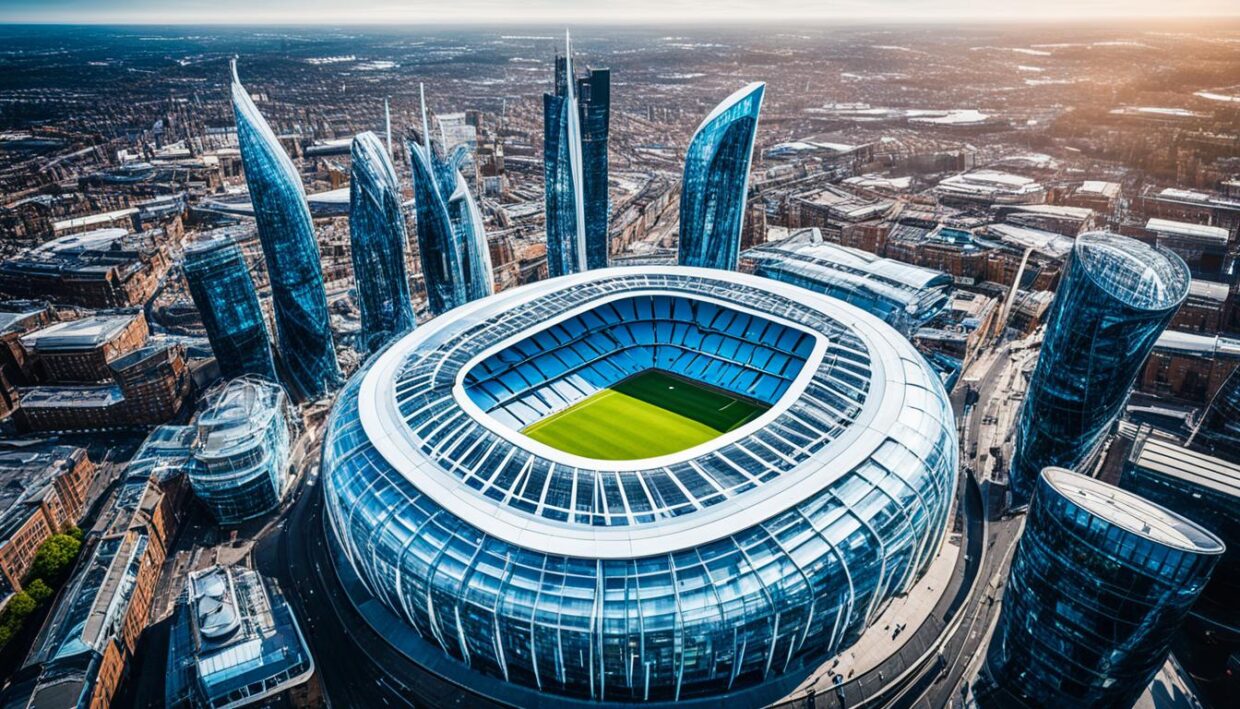
| Season | Points | Goals Scored | Goals Conceded | Title Status |
|---|---|---|---|---|
| 2022/23 | 91 | 20 | 2 | Champions |
| 2021/22 | 93 | 99 | 26 | Champions |
| 2020/21 | 86 | 83 | 32 | Champions |
| 2019/20 | 81 | 102 | 35 | Runner-Up |
Achievements: From Premier League to World Stage
Manchester City has firmly established itself as a dominant force in football, demonstrating remarkable accomplishments that extend far beyond national victories. The club’s impressive list of man city achievements includes not only a series of Premier League titles but also triumphs on the continental stage, marking significant milestones in their history.
Continental Glory: UEFA Champions League Highlights
Breaking through the European barrier, Manchester City won the UEFA Champions League in the 2022/23 season, solidifying their status among Europe’s elite clubs. This achievement came after numerous attempts to secure a spot at the top of European football.
- Key victories included pivotal matches against renowned opponents.
- Players showcased exceptional performances that led to progress through the rounds.
The Champions League victory not only added to their trophy cabinet but also heightened their global reputation, drawing attention to the club’s evolution into a formidable competitor in Europe.
Winning the Treble: A Historic Feat
In 2023, Manchester City accomplished a historic treble, solidifying their position as treble winners and marking a significant achievement in English football history. This feat placed them alongside a select group of clubs that have achieved such a remarkable success.
| Season | Competitions Won | Trophies |
|---|---|---|
| 2022/23 | Champions League, Premier League, FA Cup | 3 |
| 2018/19 | Premier League, FA Cup, League Cup | 3 |
With an unwavering commitment to excellence, Manchester City continues to raise the bar through their consistent performance on both domestic and international stages. The combination of strategic management and world-class talent has propelled them to extraordinary heights, reflecting a legacy that resonates across the football world.
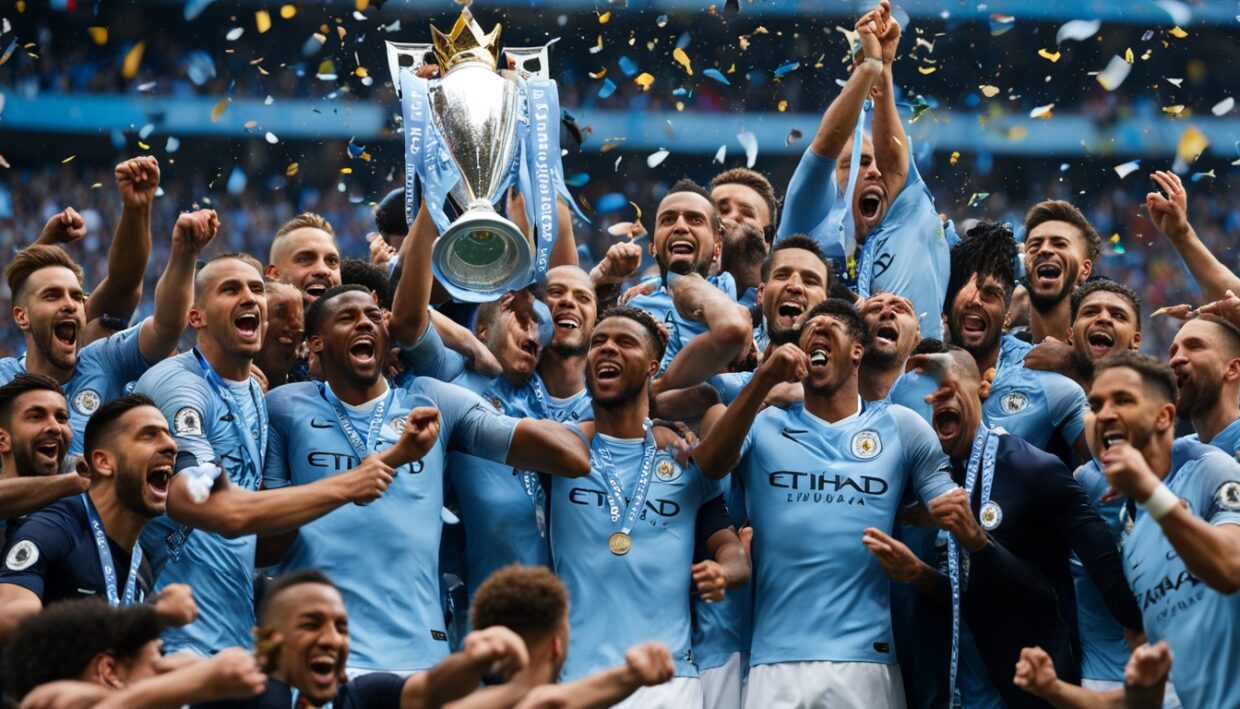
Brand Value and Global Recognition
Manchester City’s continued success is not solely confined to its on-pitch achievements. The man city brand value reflects its ascent in the world of football, now estimated at approximately €1.6 billion, signifying a 7% increase. This impressive valuation places City firmly as the second-most valuable football club brand globally.

Several factors contribute to this rising brand value, notably strong marketing initiatives, strategic commercial partnerships, and substantial football investments aimed at enhancing its global footprint. Partnerships such as the ongoing collaboration with Tecno Mobile have played a significant role in this strategy. Since 2016, Tecno Mobile has worked with Manchester City to bolster its global recognition within key markets.
Financial Success and Club Investments
The financial landscape of Manchester City epitomizes modern football’s potential for lucrative growth. Investments in state-of-the-art facilities, including the renowned Etihad Stadium, have further solidified the club’s competitive edge. The effective use of digital content strategies engages fans worldwide, ensuring that Manchester City maintains a leading position in fan engagement and interaction.
As global recognition grows, the commercial aspect of the club continues to thrive. Engaging initiatives, such as the Tecno Race to Manchester City, exemplify how the club is reaching out to its international fanbase, particularly in emerging markets like India. Such efforts not only elevate the man city brand value but also contribute significantly to its overall financial health.
Man City’s Home Ground: The Etihad Stadium
The Etihad Stadium, the man city home ground, serves as a significant landmark in Manchester and a symbol of the club’s success. Officially opened in 2002 for the Commonwealth Games, this elite venue transitioned to focus on football, cementing its place in the landscape of English sports. With a remarkable stadium capacity of 53,600 for domestic matches, the stadium has hosted electrifying encounters that have shaped the history of Manchester City F.C.
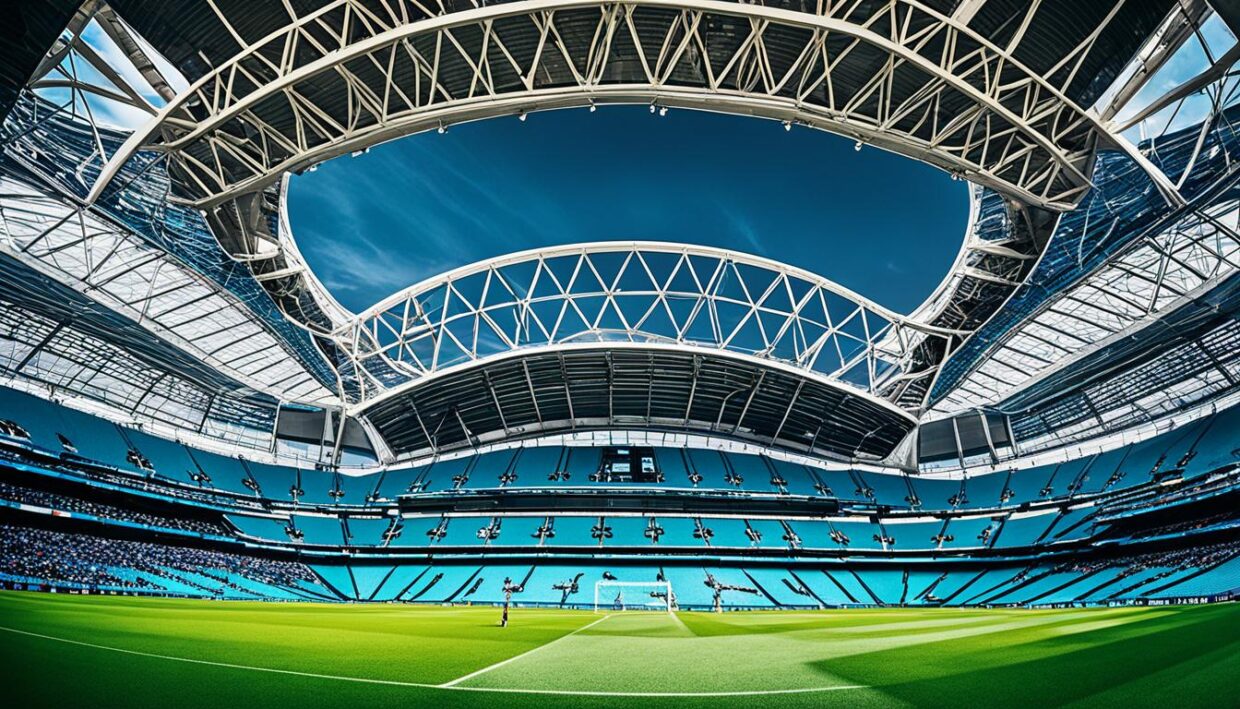
Numerous facilities enhance the matchday experience at the Etihad Stadium, including 70 executive suites and several themed restaurants. The natural grass pitch, measuring 105 by 68 meters, is renowned for its quality and is reinforced with artificial grass fibers by Desso. This leads to a superb playing surface that has delighted players and fans alike.
The stadium has seen various major events beyond football, including the UEFA Cup Final in 2008 and the Rugby Union World Cup in 2015. Notably, it accommodates a record attendance of 54,693, a milestone achieved during a thrilling match against Leicester City in February 2016. Ongoing renovations aim to expand the stadium capacity further to approximately 61,470 seats by 2026, demonstrating the growing demand and popularity of this remarkable venue.
The Etihad Stadium contributes significantly to the atmosphere of home games, fostering a sense of community and belonging among fans. It embodies the spirit of Manchester City, providing a platform for showcasing top-tier football and hosting grand events, solidifying its reputation as one of the premier sports venues in England.
Challenges and Controversies: Financial Fair Play Allegations
Manchester City is currently embroiled in a series of challenges related to financial fair play and numerous man city controversies. The Premier League has charged the club with 115 counts of alleged financial irregularity, which include significant accusations of failing to provide accurate financial information from 2009 to 2018. This period encompasses their remarkable dominance in English football, securing a record fourth consecutive Premier League title along with several other trophies.
Among the charges, around 30% pertain to the club’s alleged lack of cooperation during the Premier League’s ongoing investigation, which has been active since 2018. The club allegations suggest a consistent failure to comply with UEFA’s financial fair play regulations during critical years from 2013 to 2018, raising eyebrows within the football community.
As the legal proceedings unfold, potential consequences loom. If found guilty, Manchester City could face severe penalties such as fines or even a points deduction. At present, rumors indicate that a hearing for the club’s case is anticipated in the autumn of 2024, with a verdict expected by mid-2025. The repercussions could significantly impact the club’s reputation and future operations, especially as many speculate that a points deduction could amount to as much as 30, a substantial blow to their standing in the league.
Notably, City won multiple titles during the timeframe in question. Yet, the independent commission has the authority to impose limitless sanctions, including possible expulsion from the Premier League. Recent precedents set by penalties handed to other clubs like Everton could suggest a trend towards rigorous enforcement of financial regulations.
As tensions rise, Pep Guardiola has publicly stated his feelings towards the situation, hinting that he may consider leaving if the club is held accountable for the charges. The fate of Manchester City remains uncertain as fans and analysts alike monitor the unfolding drama closely.
| Charge Description | Occurrences |
|---|---|
| Accurate Financial Information Failure (2009-2018) | 54 |
| Lack of Cooperation During Investigation | 30% |
| Total Premier League Charges | 115 |
| Potential Points Deduction Estimate | 30 |
| UEFA Fine for Financial Irregularities | €30m (£26.8m) |

The Future of Manchester City Football Club
Manchester City stands at a pivotal juncture as it maps out the path ahead under the guidance of the City Football Group. With an unwavering commitment to sustainable growth, the club’s long-term vision aims not only at maintaining its dominant status in English football but also expanding its reach internationally. The investment in young talent and infrastructure development speaks to a robust strategy designed for enduring success.

Long-Term Vision Under City Football Group
The City Football Group’s influence has been transformative, formulating ambitious plans involving numerous facets of the club’s operational framework. Key components of this long-term vision include:
- Investment in Youth Development: Cultivating young talent through enhanced academy programs to ensure a steady pipeline of proficient players.
- Global Expansion: Strengthening partnerships with associated clubs worldwide to increase Manchester City’s global footprint and marketability.
- Coaching Stability: Maintaining exemplary coaching staff, with a focus on integrating Guardiola’s philosophy into the club’s fabric, even after his departure.
- Infrastructure Development: Enhancing existing facilities and investing in new projects to support player development and fan engagement.
Manchester City’s recent achievements, including winning six Premier League titles in the past seven years, underscore the effectiveness of its current strategy. The pressure is on for Pep Guardiola to make a decision regarding his future by Christmas, potentially impacting the club’s immediate roadmap. If he chooses to stay, continuity at the coaching level will likely foster the favorable environment needed for realizing the club’s ambitious objectives.
Both the man city future and the overarching strategies of the City Football Group embody a clear intention to achieve competitive excellence. This commitment underscores the club’s aspirations to etch itself further into football history while prioritizing the blend of innovation, talent, and community engagement.
| Strategy Component | Description | Impact on Man City Future |
|---|---|---|
| Investment in Youth Development | Enhancing academy programs | Sustained talent supply |
| Global Expansion | Strengthened partnerships | Increased market presence |
| Coaching Stability | Fostering a consistent philosophy | Long-term competitive advantage |
| Infrastructure Development | Upgrading facilities | Improved player and fan experience |
Community Engagement and Social Responsibility
Manchester City’s commitment to community engagement and social responsibility is evident through a range of impactful programs. The club actively supports local communities, fostering a sense of unity and inclusion. By implementing various charitable initiatives, Man City aims to uplift individuals and groups who may otherwise be overlooked.
The City Football Academy exemplifies this approach. With its state-of-the-art facilities, the academy not only nurtures talent but also serves as a hub for community development. Events at the Academy involve local residents, ensuring that the benefits extend beyond the players themselves. This holistic model combines football training with vital life skills and academic support for over 240 young athletes from U9 to U23.
Recognizing the significance of social value, Manchester City emphasizes partnerships with governmental and non-governmental organizations. Such collaborations enhance community ownership, encouraging local stakeholders to engage with tailored services. Community feedback is essential, enabling the club to make informed decisions that address real needs.
Through inclusive practices, marginalized voices within the community find representation in the decision-making processes that affect them. This empowers those individuals and promotes social transformation, as they can advocate for issues that matter in their everyday lives. As Manchester City continues to prioritize community engagement and social responsibility, the club strengthens its role as a responsible corporate citizen in the evolving landscape of professional sports.
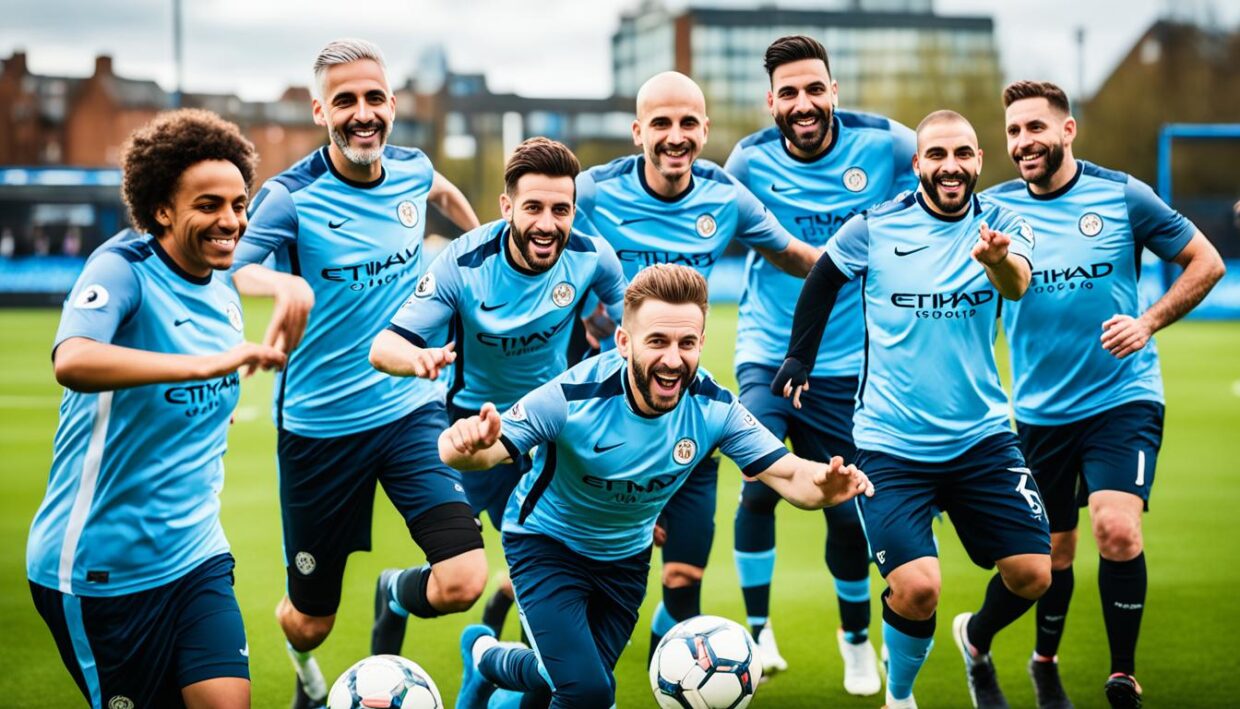
Conclusion
Manchester City’s journey as a football powerhouse has been both remarkable and complex. With five English Premier League titles in just six seasons, including a historic third consecutive title, the club has solidified its status at the pinnacle of English football. Under the strategic leadership of Pep Guardiola, who has etched his name as the league’s most successful foreign coach, the squad’s on-pitch achievements have crafted a compelling football legacy.
However, this success has not come without challenges. The numerous allegations surrounding Manchester City’s financial practices, including accusations of 50 breaches of financial regulations and the ongoing investigation into their compliance with the Premier League, pose significant hurdles. These matters underscore the delicate balance the club must maintain between its on-field success and off-field scrutiny. Despite these challenges, the potential for Manchester City remains high in the landscape of modern football.
As Manchester City navigates these complexities, their future aspirations remain clear. Continued investments in player development and community engagement signal a commitment to sustainable growth. As they aim to uphold their legacy while striving for international acclaim, the club is poised to play a vital role in shaping the future of football, reinforcing its position as a leading force in both domestic and global arenas. The path ahead appears promising, filled with opportunities to enhance their football legacy while addressing the pressing issues they face.



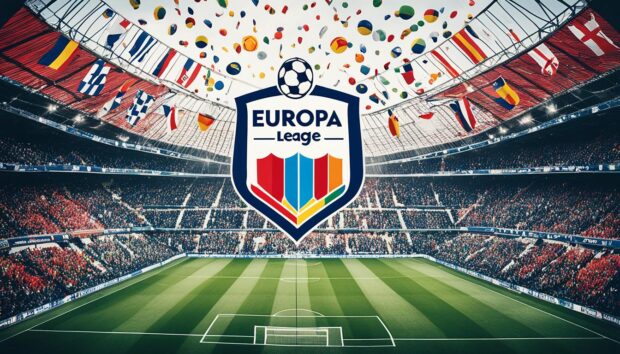
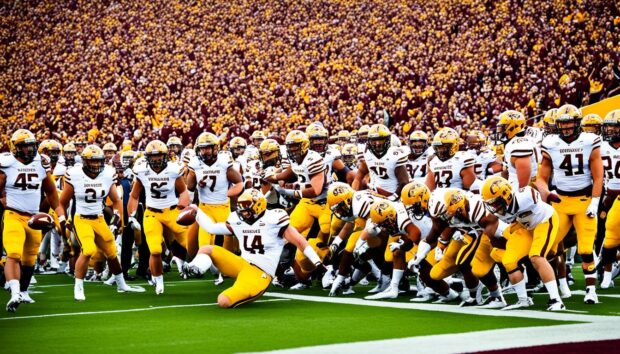
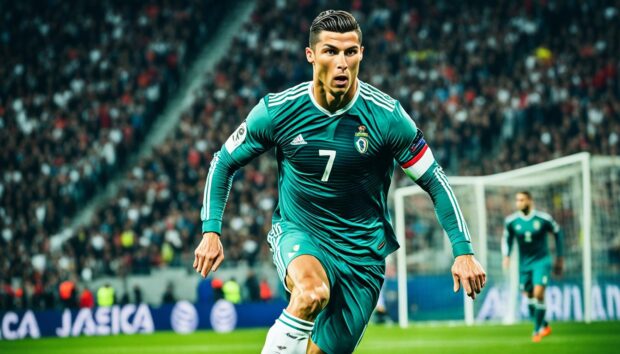
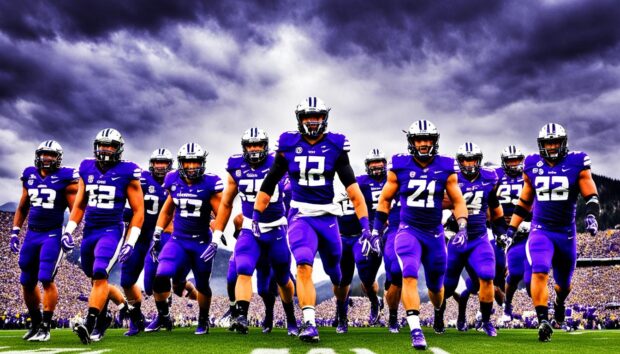
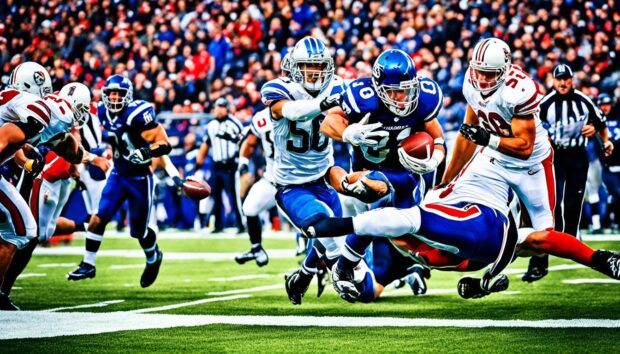
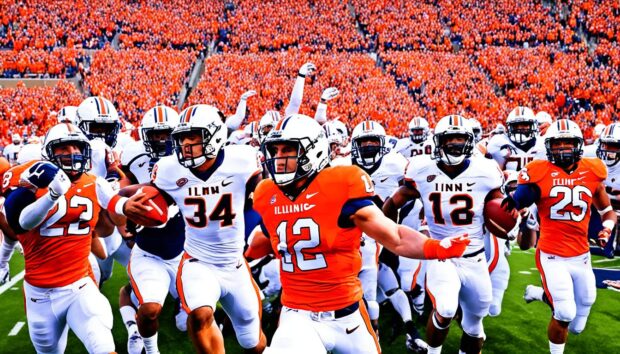





Be the first to leave a comment